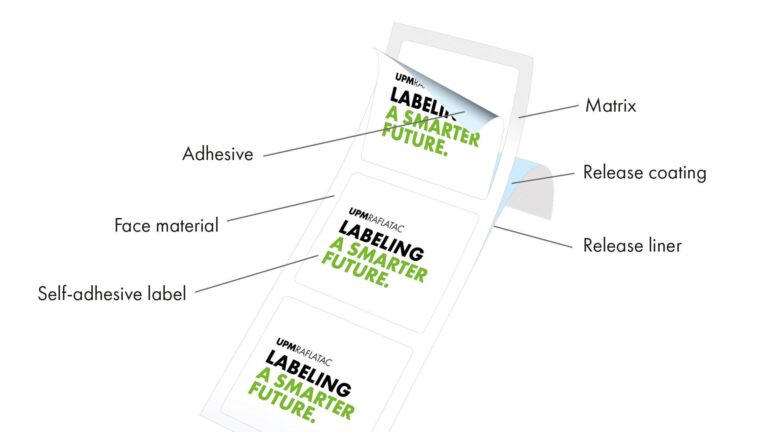UPM Adhesive Materials to Discontinue Label Materials Production in Nancy
In a significant development impacting the label manufacturing sector, UPM Adhesive Materials has announced the discontinuation of its label materials production line at the company’s facility in Nancy, France. This move, which is part of a broader restructuring effort, raises questions about the future of the workforce and the regional economy. The decision underscores the shifting dynamics in the adhesives market and reflects ongoing challenges within the industry. As stakeholders assess the implications, this closure marks a pivotal moment for both UPM and the surrounding community.
UPM Adhesive Materials Announces Closure of Label Production Facility in Nancy
UPM Adhesive Materials has announced plans to discontinue its label materials production at its facility in Nancy, a move that will significantly impact local employment and the supply chain. This strategic decision comes as part of the company’s broader aim to streamline operations and focus on high-demand markets. The closure is expected to affect approximately 150 jobs, prompting concerns among the workforce and the surrounding community.
As part of the restructuring, UPM will redirect its resources towards enhancing production capabilities at alternative locations. Key points surrounding this development include:
- Increased focus on sustainable products and technology advancements.
- Investment in other manufacturing sites to accommodate demand.
- Support programs for affected employees during the transition period.
Impact on Local Economy and Workforce: What the Discontinuation Means for Employees
The decision by UPM Adhesive Materials to cease production of label materials in Nancy is poised to have significant ramifications for both the local economy and its workforce. As one of the key players in the region’s manufacturing sector, UPM’s exit will likely ripple through various connected industries. Local suppliers and businesses that depend on UPM for materials and services are facing uncertainty, which may lead to a contraction in overall economic activity. Additionally, the city may see a decline in its tax revenue, impacting public services and community projects.
For the employees directly affected by this closure, the prospects are equally concerning. A considerable number of skilled workers will find themselves searching for new employment opportunities, which can be challenging in a market where demand may not match the available workforce. Key points regarding employee impact include:
- Job Losses: Hundreds may be left without jobs, creating immediate economic strain on households.
- Skill Utilization: Many workers possess specialized skills that may not easily transfer to other sectors.
- Potential Relocation: Some employees might need to consider relocation for better opportunities, posing a risk of brain drain in the region.
Industry Reactions and Future of Label Materials: Insights from Experts
Industry experts are grappling with the implications of UPM Adhesive Materials’ decision to discontinue label materials production in Nancy. Many are concerned about the impact on supply chains, particularly in Europe, where the demand for innovative labeling solutions has been on the rise. Analysts highlight that the closure reflects broader trends within the sector, such as increasing raw material costs and shifting consumer preferences for sustainable packaging. As a result, stakeholders are urged to rethink their strategies to remain competitive.
Looking ahead, the future of label materials is likely to be shaped by several key factors:
- Sustainability: Manufacturers are developing eco-friendly alternatives to traditional label materials.
- Digital Transformation: The integration of smart technologies is set to enhance labeling applications.
- Market Adaptability: Companies will need to pivot more swiftly in response to changing consumer needs.
| Factor | Potential Impact |
|---|---|
| Sustainability | Increased market demand for green products. |
| Digital Transformation | Enhanced efficiency and personalized customer experiences. |
| Market Adaptability | Improved resilience against economic fluctuations. |
Alternative Solutions for Manufacturers: Navigating the Shift in Adhesive Supplies
The recent announcement from UPM Adhesive Materials regarding the discontinuation of label materials production in Nancy has prompted manufacturers to reevaluate their supply chains and explore alternative solutions. As the adhesive industry experiences a significant shift, businesses must adapt to ensure continuity in their operations. Key strategies include:
- Exploring Local Suppliers: Engaging with regional manufacturers can reduce lead times and minimize risks associated with long-distance logistics.
- Investing in R&D: Companies can focus on developing innovative adhesive formulations that meet specific needs, thereby reducing dependency on traditional materials.
- Diversifying Product Offerings: By expanding the range of adhesive products, manufacturers can mitigate risks linked to supply shortages.
To effectively navigate this transition, collaboration between manufacturers and suppliers is essential, fostering a proactive approach to sourcing. Additionally, companies should consider leveraging technology to enhance supply chain visibility. A recent survey highlighted the following alternatives:
| Alternative Solution | Benefits |
|---|---|
| Bio-based Adhesives | Sustainability and reduced environmental impact |
| Hot Melt Technologies | Faster production speeds and lower energy consumption |
| Pressure Sensitive Adhesives | Versatility across various applications |
Wrapping Up
In conclusion, UPM Adhesive Materials’ decision to discontinue label materials production in Nancy marks a significant shift in the landscape of the adhesive and label manufacturing sector. As the company reallocates its resources amid changing market demands, the move raises questions about the future of jobs in the region and the broader implications for the label production industry. Stakeholders, including employees and clients, are now left to navigate this transition as they seek to adapt to the evolving circumstances. As UPM focuses on consolidating its operations, the industry will be watching closely to see how this decision impacts both the company and the market at large in the coming months.




